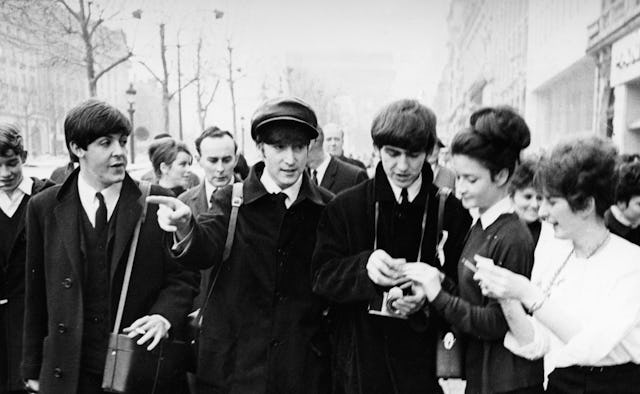How I Stopped Hating the Beatles

I always hated the Beatles.
As a child in the ’70s and ’80s, I heard my parents and radio DJs and other assorted denizens of the grown-up world talking of the age-old debate: which band is better—the clean-cut good-boy Beatles or the bad-boy rock-and-roll outlaws, the Rolling Stones? I didn’t much like the Stones either—both bands were just okay. If my parents were driving the carpool, you were more likely to hear “Sympathy for the Devil” in the car; if my best friend’s mom was at the wheel, we’d listen to 45 full minutes of her cassette of “I Want to Hold Your Hand” repeated over and over, nodding along on the vinyl bench seat in the back of the station wagon.
The problem with both the Beatles and the Stones is theirs was music from the Land of the Olds. It was music parents listened to and got excited about, the music they rhapsodized over that was playing during their first kisses. The moms would argue passionately over who was dreamier, Paul or John—or was it Mick? My pea-sized child brain found the Beatles facile and jangly, but at least I could understand their lyrics. “I’ll tell you something I think you’ll understand,” promised the Beatles, while Mick snarled “pleased to meet you, hope you guess my name.” Why do I have to guess it? You’re Mick Jagger, and you’re a very thin Gumby-esque man whose stage antics I am too green to appreciate.
My music was Tears for Fears’ “Everybody Wants to Rule the World.” It was the Human League and Depeche Mode and Madonna and the other bands they played at school dances. Through college, I continued to come up empty when my friends would resuscitate the Beatles vs. Stones smackdown after a few beers. I felt deficient in my appreciation for rock music. Why couldn’t I appreciate the bands that everyone I respected agreed typified “quality” music? I felt like a philistine who loves TV Guide but hasn’t read Dickens.
The reason, I think, I had such an aversion to the two bands the world agreed defined the sound of the 20th century is I had no context for them. It wasn’t until a boyfriend bought me a CD of Abbey Road at the used record store and we listened to it on a road trip that I felt like the Beatles belonged to me, that I could hear “Here Comes the Sun” as anything other than a relic that we sang in nursery school. Now I had the billboards passing on I-95, my boyfriend’s hand tapping on the steering wheel as he drove and I, looking out the window, indulging in the ecstatic fantasy that I could be the “little darling” to whom the song is sung. It wasn’t until years later, when I spent a season living down the road from the Villefranche-sur-Mer, the Riviera town where the Stones recorded Exile on Main Street, that I was able to “get” the appeal of Mick and Keith and their irresistible riffs.
I needed my own memories, my own context in which to wax dreamy over the Beatles and the Rolling Stones to decide that I’m in neither “camp.” Now that I’m old enough to understand that the false polarity projected on the two bands is just that—false—I am comfortable with bowing out of the discussion of who’s better. I’m relieved to be able to appreciate them both for their merits—and that I’m not somehow broken and immune to the enticements of the biggest gods in the rock pantheon.
And, truth be told, I kind of prefer Dylan anyway.
This article was originally published on